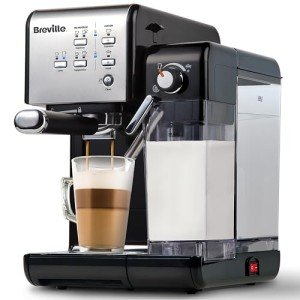14 Common Misconceptions About Commercial Espresso Machines
The Rise of Home Espresso Machines: A Comprehensive Guide
As coffee fans continue to seek fresh and tasty brews at home, the popularity of home espresso machines has risen recently. No longer simply the domain of cafes and coffee bar, these machines empower individuals to craft barista-quality espresso drinks from the convenience of their kitchens. This post will check out the various kinds of home espresso machines, their features, and factors to consider for selecting the right one. In addition, it will provide a selection of FAQs to help potential buyers make informed choices.
Kinds Of Home Espresso Machines
Home espresso machines can be classified into numerous classifications based upon their systems and user-friendliness. Each type has its unique functions, pros, and cons.
Type
Description
Pros
Cons
Manual Espresso Machines
Needs the user to by hand manage the developing process, involving methods like pulling a lever to produce pressure.
- Complete control over brewing procedure
- Compact style
- Requires skill and practice
- Time-consuming
Semi-Automatic Machines
Machine automates water flow and pressure, however the user still controls the dosing and period of the developing process.
- Balance of automation and control
- Versatile
- Learning curve for refining methods
Completely Automatic Machines
Automates the whole developing process, from grinding to developing, often with programmable settings for personalized beverages.
- Extremely easy to use
- Quick and convenient
- Less control over the developing procedure
- Higher rate point
Capsule or Pod Machines
Utilizes pre-packaged espresso pills or pods to create coffee quickly and quickly.
- Extremely easy to use
- Minimal cleanup
- Limited flavor variety
- More costly per cup than ground coffee
Super-Automatic Machines
Combines functions of totally automatic machines with built-in mills, allowing users to brew whole bean espresso and milk-based beverages with one touch.
- All-in-one benefit
- Ideal for milk-based beverages
- Often the most expensive
- Can be large
Features to Consider
When picking a home espresso machine, possible purchasers need to think about the following features to guarantee they select a machine that meets their requirements:
Grinder Type:
- Built-in mills can provide fresher premises but may need more upkeep.
- Different grinders permit more personalization of grind size.
Pressure:
- Look for machines that produce at least nine bars of pressure, which is optimal for developing espresso.
Water Temperature Control:
- Machines with adjustable temperature settings enable much better extraction of taste from beans.
Milk Frothing Options:
- Consider whether you desire a manual steam wand for frothing or an automatic milk frother for benefit.
Reduce of Cleaning:
- Machines with removable parts and self-cleaning functions considerably decrease clean-up time.
Size and Design:
- Ensure the machine fits conveniently in your kitchen and aligns with your visual choices.
Budget:
- Set a budget before beginning your search, as rates can range substantially from affordable models to high-end machines.
Benefits of Home Espresso Machines
Owning a home espresso machine provides many advantages:
- Cost-Effective: Over time, brewing espresso at home can conserve coffee enthusiasts money compared to frequent coffee shop gos to.
- Customization: Users can explore different beans, grind sizes, and brewing strategies to discover their best cup.
- Convenience: The ability to brew espresso at any time gets rid of the need to go out to a coffee shop, specifically useful during late nights or mornings.
- Quality assurance: With a home machine, individuals have total control over the quality of ingredients and brewing procedures.
Downsides of Home Espresso Machines
However, there are some disadvantages to think about:
- Initial Investment: High-quality espresso machines can be costly, needing a substantial in advance investment.
- Learning Curve: Mastering the art of espresso developing can take some time and practice, which might be intimidating for beginners.
- Maintenance: Like any home appliance, espresso machines need regular cleaning and upkeep to make sure optimum efficiency.
Frequently asked questions
1. What is the best type of home espresso machine for beginners?
Response: For novices, a semi-automatic machine is typically advised as it uses a balance between control and automation, enabling you to find out the essentials without frustrating intricacy.
2. Just how much should I invest on a home espresso machine?
Response: Entry-level machines can start around ₤ 100 to ₤ 300, while higher-end models can vary from ₤ 500 to over ₤ 2000. It's important to set a budget based upon your expected use and wanted functions.
3. Do I need a different grinder?
Answer: While some espresso machines feature integrated grinders, purchasing a different grinder enables for greater modification and ensures better quality grounds.
4. How typically should I clean my espresso machine?
Answer: Cleaning frequency can vary by machine type, however it's normally suggested to clean the machine after each use and perform deep cleanings weekly or regular monthly, depending upon use.
5. Can Buy Coffee Machine make milk-based drinks with any espresso machine?
Answer: Not all machines feature milk frothing capabilities. If you take pleasure in drinks like lattes or coffees, try to find a machine with a steam wand or automatic frother.
Home espresso machines are changing the method coffee aficionados enjoy their beloved brews. With numerous types and advanced functions readily available in the market, there is something for everybody. Whether it's the happiness of developing unique dishes or merely enjoying the best shot of espresso, buying a home espresso machine can boost both the coffee-drinking experience and the quality of life for coffee fans everywhere. Just like any financial investment, it is essential to weigh the advantages against the prospective disadvantages and select a machine that seamlessly fits both your lifestyle and choices.
